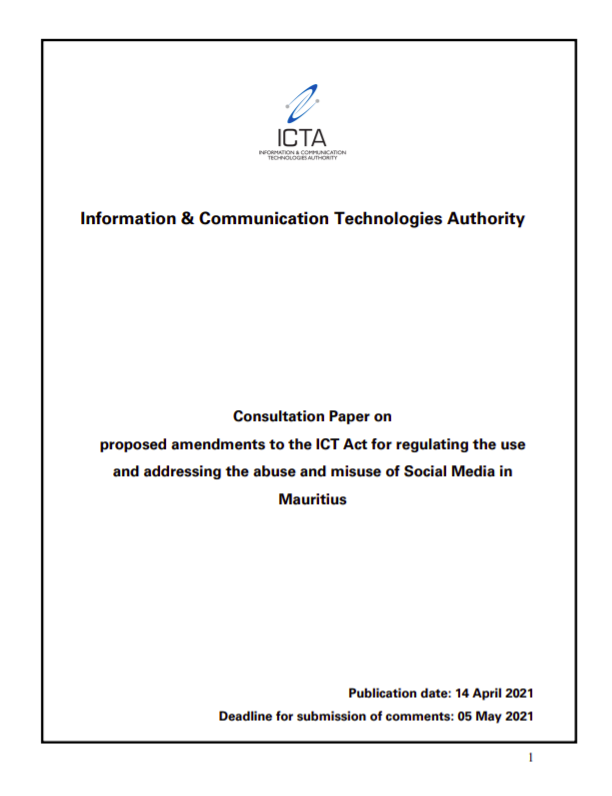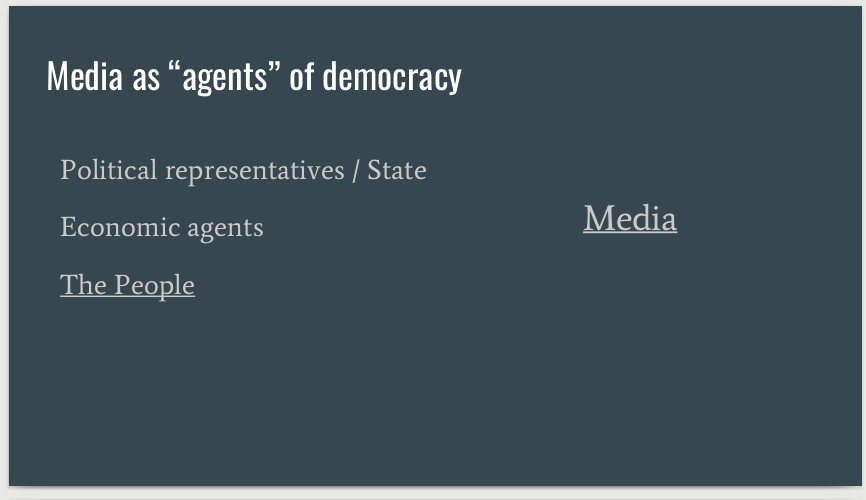On 14 April 2021, the Information and Communication Technologies Authority (ICTA) released a Consultation Paper on proposed amendments to the ICT Act for regulating the use and addressing the abuse and misuse of Social Media in Mauritius. In a nutshell, the paper makes a proposal to amend the law so that all internet communication would have to pass through a centralised proxy server managed by the agency and citizens will have to install a digital self-signed certificate on their devices to allow the server to access, decrypt, segregate social media traffic for analysis for investigative purposes. The technical toolset would be managed by an Enforcement Unit within the ICTA and there would be a National Digital Ethics Committee to decide on how to deal with “illegal and harmful content”.
There are numerous issues with this proposal. The most salient one being that the mechanism would make Mauritius a blanket surveillance state, which is incompatible with the concept of democracy. In fact, no other democracy in the world uses such a blanket system to intercept citizens’ communication in order to regulate social media. Below is a more detailed analysis of the content.
– What is the context for the proposed amendments?
– Preliminary comment about the context
– What are those proposed amendments to the ICT Act?
– Comment about the philosophy underlying the proposal
– What does the Constitution say?
– What are other democratic states doing or trying to do?
– Other key questions posed by the proposed amendments
– What are potential alternatives to the proposed amendments?
– Conclusion
What is the context for the proposed amendments?
There is a perceived need for regulation of social media in Mauritius. The stated objective is to combat illegal and harmful content (and comment) in a way that is not dependent on international social media companies. These platforms are deemed to be not sufficiently responsive to requests from the authorities in terms of:
- time taken to respond,
- community standards which are not as strict as our domestic laws, and
- the Creole language which the platform moderators do not understand.
The paper states that a “minority of individuals or organised groups” are at fault and that “The issue at hand is when these abuses, even though perpetrated by few individuals/groups, go viral, the damage created is very far reaching.”


